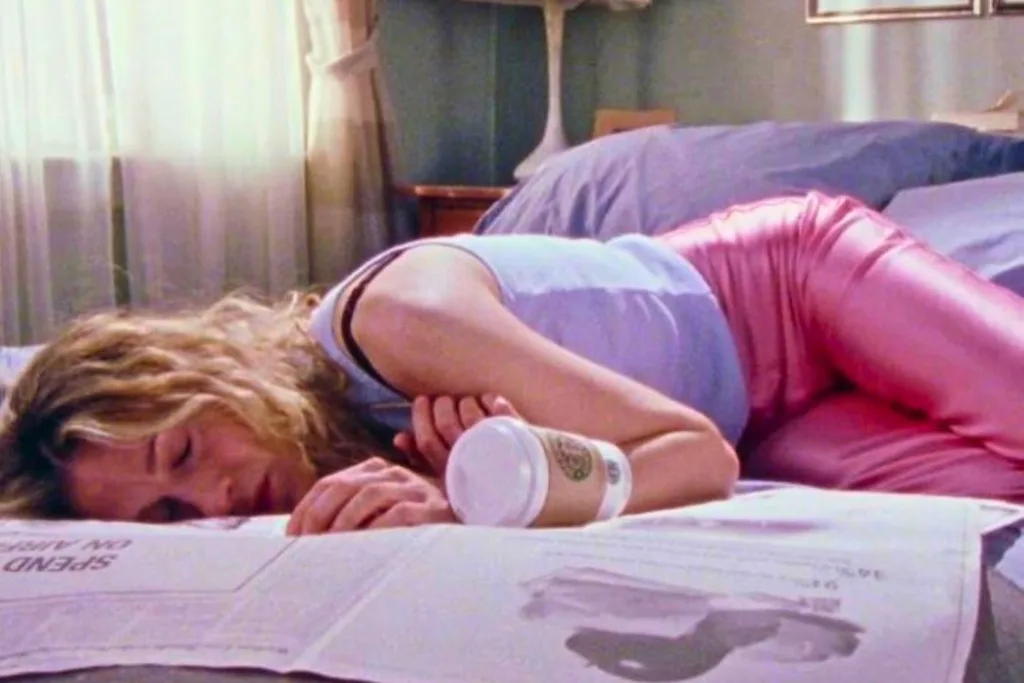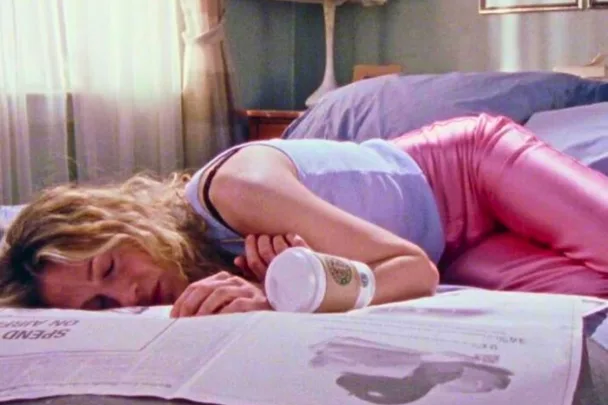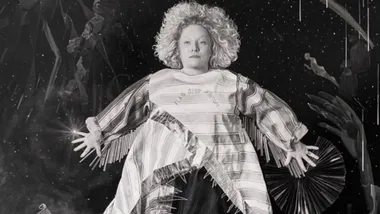People who menstruate are often beholden to their cycles. Each menstrual phase comes with its own unique hormonal cocktail that can change how we experience the world, from our mental wellbeing to our sense of smell.
While these changes are often viewed with fear and displeasure (acne, mood swings, wanting to eat chocolate 24/7 — we hear you!), variety is the spice of life, right? (Right?!) Perhaps we just need better information about what the heck is going on.
There are four phases of the menstrual cycle: menstruation, follicular, ovulation and luteal. Each one impacts you differently, potentially shaping your energy levels and mood.
Speaking to Dr Kirsty Wallace-Hor, symptoms typically change in accordance with the rise and fall of different hormones.
“There are two main hormones [affecting our cycle] produced by the pituitary gland in the brain: the follicle stimulating hormone, FSH, and the luteinizing hormone, LH. They’re the ones that act on the ovaries to stimulate them to do things,” Dr Kirsty explains.
“The other hormones are, of course, oestrogen and progesterone — which people would be more familiar with because they’re the components in a lot of our hormonal contraceptives.”
While those are the ‘major players’ in our cycles, what exactly do they do to our bodies?

Let’s examine the phases…
Phase 1: Menstruation
Days: 1-7 (all days are approximate)
What is the menstruation phase?
Essentially, this is your period. The phase starts on the first day of your period and thus begins your traditional cycle.
The menstrual phase is when you shed your uterine lining, which usually lasts between three and seven days. The first day of your period, counts as the first day of your cycle.
Main symptoms of the menstruation phase:
Despite lending its name to the entire hormone cycle, menstruation is technically light on “symptoms” (except for the very obvious one, i.e. your period). While people typically associate pre-menstrual symptoms (PMS) with menstruation itself, the hint is in the name: these happen pre- your period. However, Dr Kirsty notes some PMS symptoms can carry over into this first phase, such as:
- Bloating
- Migraines/headaches
- Cramps
- Acne
- Breast tenderness
What are your hormones doing in the menstruation phase?
On a hormonal level, this is when oestrogen and progesterone are at their lowest. “Basically, if there isn’t a pregnancy, you get a dramatic drop of both those hormones, which triggers menstruation,” Dr Kirsty explains.
It’s the ‘movement’ or fluctuation of these hormones in the luteal (pre-menstrual) phase that bring some of the most intense symptoms.

Phase 2: The Follicular Phase
Days: 1-14
What is the follicular phase?
Technically, the follicular phase starts on the first day of your period — also the first day of your cycle. However, it continues all the way to ovulation.
During the follicular phase, your pituitary gland releases a hormone (FSH) to stimulate your ovarian follicles to produce an egg (which starts around day 10). This phase is also when your uterine lining begins to thicken in order to make way for the implantation of an egg.
While it overlaps with phase one, it does have its own distinct symptoms you may notice after your period has ended.
Main symptoms of the follicular phase:
- higher energy levels
- better skin
- rising libido
What are your hormones doing in the follicular phase?
This is when oestrogen begins to rise again.
“This is seen as the ‘happy’ or the more energetic phase of the cycle,” Dr Kirsty says.
However, it’s not simply a surge in oestrogen that leads to this outcome.
“It’s probably a combination of your period being over and you’re probably feeling a bit better, relatively speaking,” she explains. “But there is a little bit of evidence that oestrogen could be down-regulating or counteracting stress hormones, like cortisol. That could explain things like better mood, energy levels, but basically, we don’t know.”
Phase 3: Ovulation
Days: 14-16
What is ovulation?
Ovulation describes when the mature egg travels from the ovaries, down the fallopian tubes to the uterus. It typically lasts between 1-2 days, though can be as short as 12 hours.
Main symptoms of the ovulation phase:
- A rise in basal body temperature
- Enhanced libido
- Changes to cervical mucus, i.e. discharge
- Potential bleeding or pain
What are your hormones doing in the ovulation phase?
“Around day 14 you get a big surge of the luteinizing hormone, which is basically the trigger we need for that dominant follicle to release the egg,” Dr Kirsty explains.
When your LH levels peak, you are considered your most fertile. It is within this 24-48 hour period many folks ramp up their efforts if they’re trying to conceive. An enhanced libido is often associated with this phase, which Dr Kirsty pins down to evolution. “From an evolutionary perspective makes total sense that this would be the prime time to be sexually active and ‘make babies’,” she says.
Dr Kirsty also warns that some may experience spotting or pain. “That’s not dangerous or anything like that, it is just the body releasing the egg,” she says.

Phase 4: The Luteal Phase
Days: 15-28
What is the luteal phase?
The final stage of your cycle occurs after ovulation and lasts until the first day of your period.
Main symptoms of the luteal phase:
- Bloating
- Acne
- Breast tenderness and swelling
- Food cravings
- Interrupted sleep
- Mood fluctuations
- A sharpened sense of smell
What are your hormones doing in the luteal phase?
As Dr Kirsty puts it: “This is the progesterone’s time to shine.”
Progesterone is released by the dominant follicle which releases the egg, thickens the lining of the uterus and prepares it for implantation — should that be the desired outcome. Without a pregnancy, oestrogen and progesterone levels hit the deck, triggering many of the symptoms we associate with pre-menstrual syndrome (PMS).
“People feel a little less motivated to [be productive] in the second half of the cycle, because they might be getting those mood swings or lower mood, feeling they’re a bit more lethargic, those sorts of things, which is normal to an extent,” Dr Kirsty explains.
Of course, everyone is different, and some people experience PMS more than others. However, as Dr Kirsty adds, having a better grasp on what is coming can help you understand and cope with any changes.
“Knowing or being able to anticipate you might be getting symptoms during this period is empowering in itself,” she notes.
Mental health and mood changes
Anecdotally, many people also report feeling more anxious or depressed during the lead-up to menstruation. However, what actually causes this isn’t crystal clear.
“What we know is largely based on animal studies or on lab work,” Dr Kirsty explains.
“The fluctuations in oestrogen and progesterone affect our neurotransmitters, [which are our] chemical messengers in the brain. A few systems in the brain have been implicated but the strongest evidence is on serotonin. For example, we know patients with PMS have lower blood serotonin levels. Serotonin helps control our moods — it helps us feel happy — and also helps regulate sleep. This is why we sometimes use selective serotonin reuptake inhibitors to help with severe PMS symptoms.”
Food cravings
Similarly, food cravings typically associated with the cycle are also linked to serotonin production.
“Carbohydrates are required for serotonin production. This is why I warn my patients on low-carb diets that they might notice changes in their mood!” Dr Kirsty begins. “But this may also explain why we have food cravings in the lead up to, and during our period, particularly for carb-heavy foods. It’s our body’s attempt to try to ramp up serotonin production. I suspect that there is also an element of emotional eating due to the mood changes.”
Variations In The Menstrual Cycle
Naturally, every person and every cycle is different. While the aforementioned symptoms are considered to be the most typical of the cycle phases, that’s not to say you can’t experience things differently. However, if you experience severe versions of any of the above symptoms, Dr Kirsty recommends chatting to your GP.
“We don’t talk about this stuff enough, and, often, people with very long or heavy or painful periods, just kind of accept it as normal — when they shouldn’t,” Dr Kirsty says. “If it really is impacting on their mood or their function — if it’s stopping them from playing sport or going to school or work for long periods of time — I would encourage them to see their GP. They really shouldn’t have to put up with it.”
Furthermore, significant variations in symptoms may be a sign something is not quite right. For example, irregular cycle lengths are a common symptom for those with Polycystic Ovary Syndrome (PCOS), or significant menstrual cramps could be your first warning sign of endometriosis. Meanwhile, abnormal changes to the colour or texture of your discharge could hint at a sexually transmitted infection.










